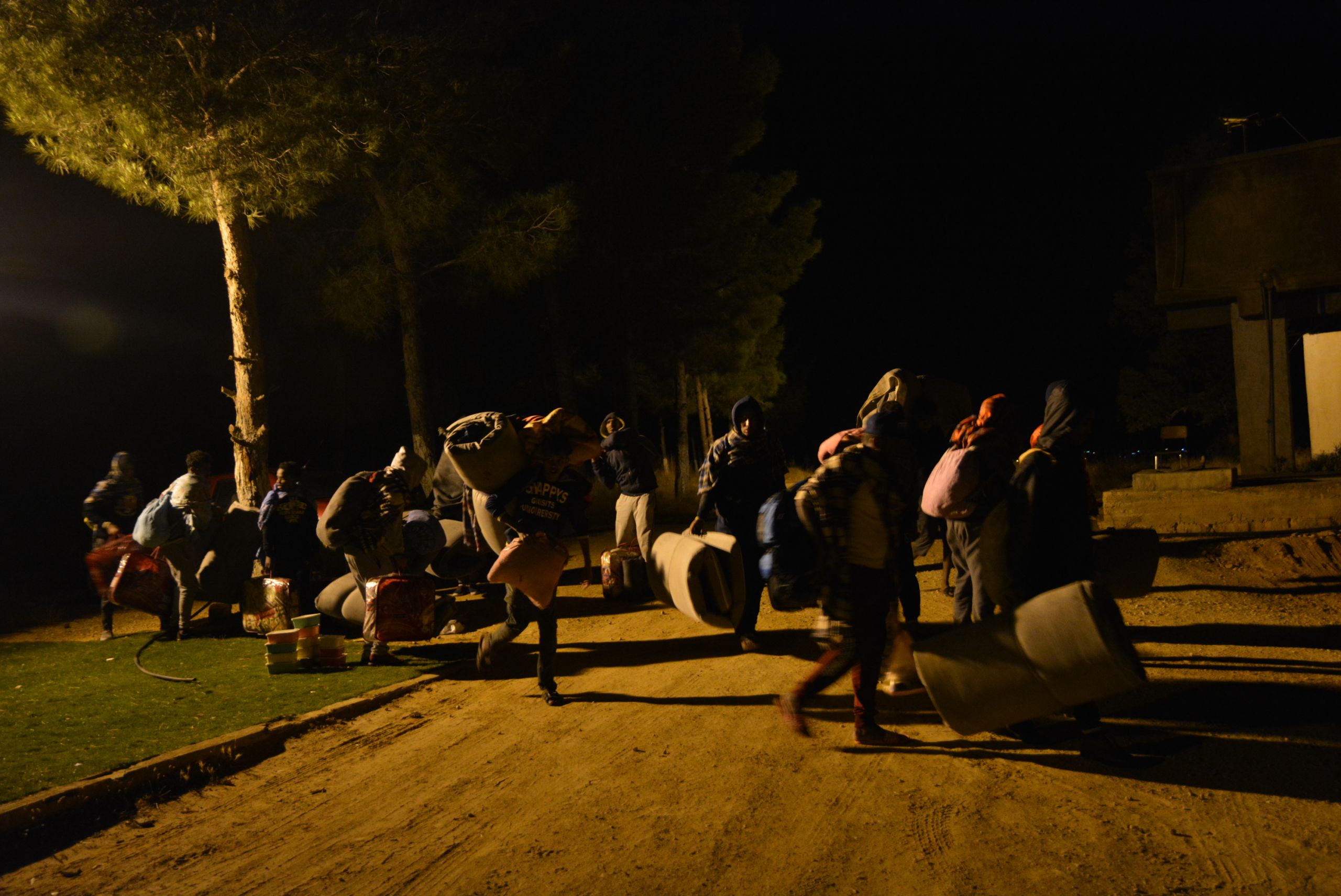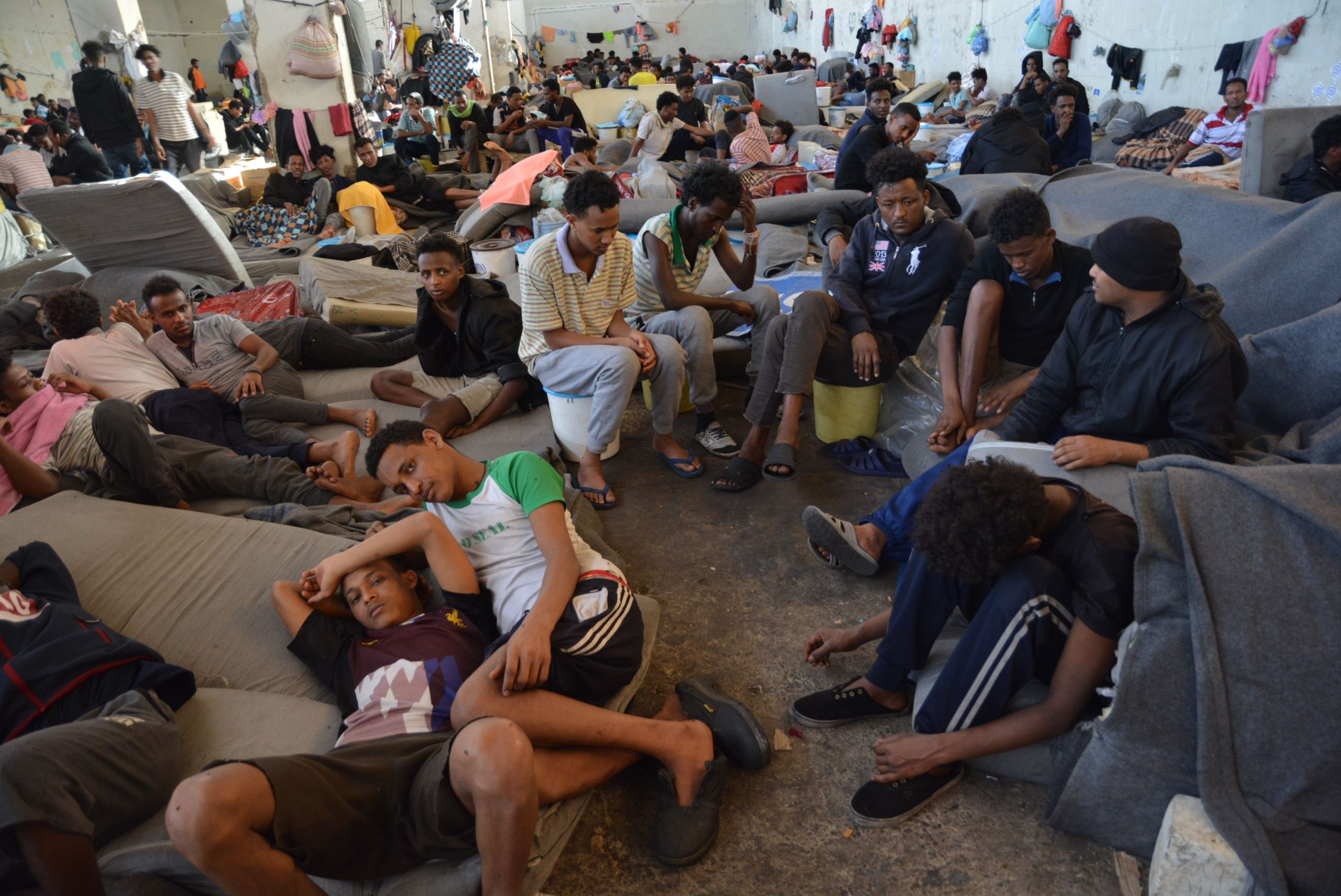Libya’s detention centres
Out of sight, out of mind: refugees facing despair, disease and death

Between 5,000 and 6,000 refugees and migrants are being held arbitrarily in Libya’s detention centres, nominally under the authority of the Tripoli-based Ministry of Interior.
Their situation has become even more perilous in recent months with the conflict between the Libyan Government of National Accord (GNA) and the Libyan National Army (LNA), which started in early April. But despite repeated calls for their protection and evacuation, the detained refugees and migrants have little prospect of reaching safety any time soon. Meanwhile, more people are being forcibly returned to the same cycle of violence and detention in Libya by the EU-supported Libyan coast guard.
Away from the battle area, hundreds remain locked up for an indefinite period in harmful conditions, exposed to abuses and deaths, and driven to desperation.
South of Tripoli, in the Nafusa Mountains, people in need of international protection and registered with the UNHCR as asylum seekers or refugees have been left stranded in detention for months – and in some cases years – with virtually no assistance.
Between September 2018 and May 2019, at least 22 people died in detention, mostly from tuberculosis, in Zintan and Gharyan detention centres. Among the dead were young men, women and an eight-year-old child.

In Zintan detention centre, some 700 people were locked up in an overcrowded agricultural warehouse, while 200 others were confined in a series of smaller buildings.


Sanitation conditions in the agricultural warehouse were shocking. The 700 inmates had four barely functioning toilets, buckets to urinate in, no shower and only sporadic access to water, which was unsuitable for drinking. A tuberculosis outbreak had likely been raging through the detention centre for several months.


The main warehouse was emptied in June, and the remaining people distributed among the other buildings within the detention centre compound. Some are now sleeping in rooms of around 15m2 with up to 20 other people.


Rather than being given a way out and the protection to which they are entitled, these refugees are condemned to an indefinite cycle of violence and detention.


Most have already been through dreadful experiences in Libya, including being kidnapped by people traffickers who subjected them to rape and torture. Many suffer both physical and psychological consequences.


The level of trauma and desperation, exacerbated by indefinite detention, is so overwhelming that several suicide attempts have been reported. Detainees frequently have to restrain cellmates in distress with several mental health issues to stop them from inflicting violence on themselves or others.

People detained in Zintan are mostly fleeing persecution and violence from Eritrea and Somalia.
Some have been in Zintan detention centre since March 2017. The most recent arrivals were brought to the detention centre in May after being arrested at a checkpoint. But the majority were transferred to Zintan from various Tripoli detention centres in September 2018 after fighting broke out in the capital.
During recent episodes of fighting in Tripoli, some refugees and migrants reportedly refused to be transferred, rightly fearing they would be forgotten in Zintan, out of sight and with little access to medical care.




Responding against the backdrop of such a critical situation, MSF has been providing medical consultations and arranging referrals to hospital since late May. During the first week of July, MSF teams made four referrals and conducted over 120 consultations in Zintan detention centre. In total, we referred 17 patients from Zintan detention centre and 11 from Gharyan detention centre for hospital treatment.
What our medical teams can achieve to alleviate people’s suffering is inevitably limited when our patients remain in the same protracted detention situation, with their international protection needs unanswered.
Bread and pasta are the main foods provided to people in detention, which makes for a very poor diet over a prolonged period of time, especially for people with medical needs. In addition, tuberculosis can lead to malnutrition and in turn undernutrition increases the risk of tuberculosis.
MSF teams conducted several food distributions to enhance people’s diet, providing tuna, sardines, dates and fruit juices. We also distributed powdered infant milk and hygiene items.




Earlier this year, some 50 of the detainees in the poorest health were transferred from Zintan to Gharyan detention centre, which became a heavily militarised area when the LNA took control of it in the course of its offensive on Tripoli in April.
Detainees were provided by the detention centre management with a chain and padlock – reportedly to protect themselves against incursions by armed elements in the absence of guards.
On 3 June, UNHCR relocated 96 people from Zintan detention centre to a UNHCR-run facility in Tripoli where they await evacuation from Libya. Currently, 585 people remain in Zintan detention centre.
On 26 June, 29 people were still in Gharyan detention centre when GNA forces recaptured the town after heavy fighting that included airstrikes. Detainees were in fear for their lives, with nowhere to go in the middle of the battle.
One week later, they were finally relocated to Tripoli: eight referred for hospital treatment by MSF and 21 referred to an NGO-run shelter programme.
Evacuations and resettlements of refugees and asylum seekers from Libya must be scaled up urgently. For many people trapped in detention centres, it is matter of life and death.


